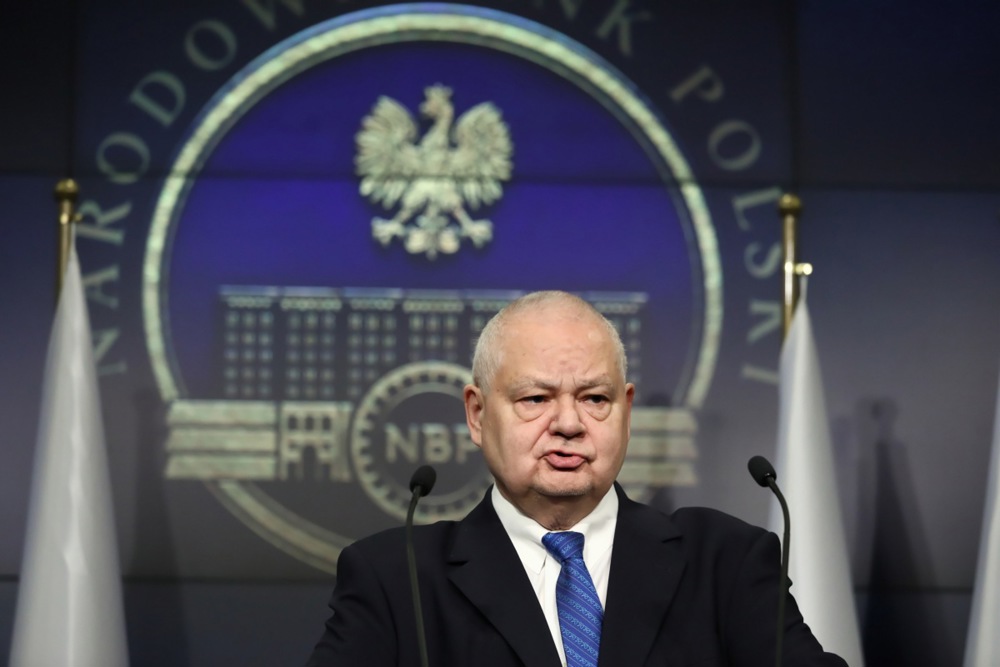Adam Glapiński, the head of Poland’s central bank (NBP), is in line to be indicted by Parliament and tried by the country’s Tribunal of State, the body responsible for dealing with suspected crimes against the Constitution allegedly committed by public officials.
Polish Prime Minister Donald Tusk, speaking at a press conference on March 19, told journalists that a resolution to indict Glapiński was ready and would be brought before Parliament.
“The motion is prepared. It will be submitted in the coming days,” he said.
Tusk added that the action was among those promises his party made to the electorate in last year’s national election campaign, along with one to “bring to justice” several senior officials from the previous Conservative (PiS) government.
The PM is keen to show that his ruling coalition is meeting at least some of its pledges as the opposition PiS and Confederation parties have claimed few of the 100 promises for the first 100 days of his rule – running from December 13 to March 20 – have seen the light of day.
In fact, many of those flagship promises, including ones regarding reductions in tax and the liberalisation of abortion legislation, are stuck because of disagreement within the governing coalition, while legislative drafts on judicial and public-media reforms are still to be debated in Parliament.
The Government has been more successful in unlocking European Union funds, thanks to supportive treatment from the European Commission, something its predecessors did not enjoy. It has also made headway in unleashing a spate of parliamentary investigations into the activities of the previous government.
The move to indict Glapiński falls under that context.
Tusk’s Civic Coalition (KO) has repeatedly accused the central bank chief of failing in the fight against inflation, of politicising the central bank and of illegally supporting the State budget with the purchase of bonds during the Covid pandemic.
Any motion to begin indictment proceedings against him will need to be signed by at least 115 of the 460 MPs in Parliament and secure an absolute majority of MPs (231) for it to move to the Tribunal of State.
Still, Poland’s Constitutional court, or Constitutional Tribunal (TK), has recently ruled any such indictment would require the support of three-fifths of MPs (276), which the ruling coalition does not have.
The ruling majority, in turn, does not recognise the Constitutional court as valid and Tusk has said the indictment will proceed regardless.
There is also confusion over if and when Glapiński might be suspended from office if facing legal proceedings.
The TK claimed he should not be suspended at all, whereas other legal experts stated he ought to be from the moment Parliament votes to indict him. In that case, many say that while the indictment is being considered his deputy should take over.
The reaction of the European Central Bank (ECB) is another factor in the matter. Last December, ECB President Christine Lagarde made clear in a letter to Glapiński that her institution would challenge any “politically motivated” suspension of him in the European Court of Justice.
Glapiński has been NBP chief since 2016 and was re-elected by Parliament in 2022 to serve a second six-year term, due to end in 2028.
If the Tribunal of State was to accept Parliament’s indictment, he can be removed from office but his successor would have to be nominated by the Polish President Andrzej Duda and then approved by an absolute parliamentary majority.
With Duda a PiS ally, many say it would therefore be difficult for any agreement to be reached over a candidate for the head of the NBP, meaning the institution would likely then be led by the current bank deputy Marta Kightley.





